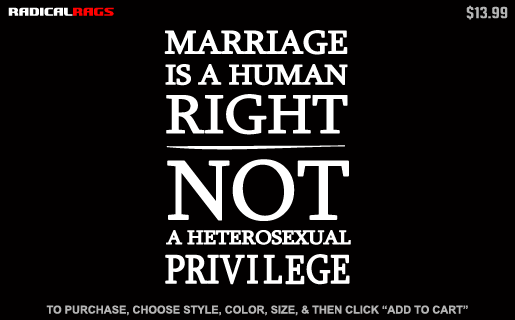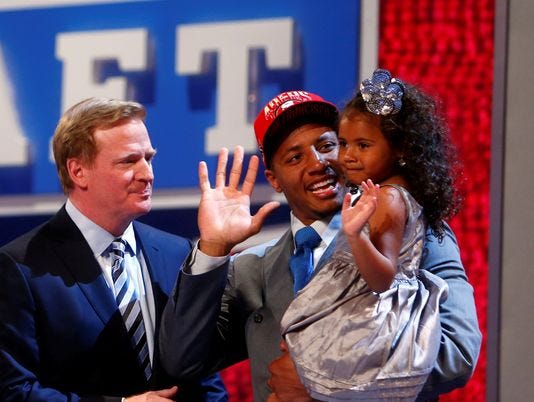_________________________________________________________________________________
Homosexuals have been unable to marry for
centuries. Homosexuality was seen as an unnatural abomination, and as such was
outlawed. Yet, times and laws change. The ones regulating same-sex marriage,
however, largely did not. The Defense of Marriage Act, signed into law by
President Bill Clinton in 1996, prohibited marriage between members of the same
gender and defined marriage as a union solely between one man and one woman. (GovTrack,
3) As of 2012, homosexuals unfortunate enough to be in one of thirty-seven
states are denied 1,138 additional benefits and responsibilities ranging from
inheritance issues to a lack of spousal protection in court cases. (Human
Rights Campaign, 1) Furthermore, the recent ruling of the United States Supreme
Court overruling certain parts of the aforementioned Defense of Marriage Act
only applies in the thirteen states that actually have legalized same-sex
marriage. As such, many couples are left with little more than a written
acknowledgement of their commitment that often does not translate across state
borders—a civil union.
The unreasonable prejudice extends to the
areas that are supposed to preach tolerance and acceptance—churches. People of
faith generally misunderstand homosexuality, and as such refuse basic rights
and see them as subhuman. Though churches are well within their right to whom
they give their ceremonies, many followers misunderstand their faith’s
teachings. As New Jersey Governor Chris Christie (R) stated regarding his
position on homosexuality, "My religion says it's a sin,” expressing a
popular misconception among Catholics. (On the Issues, 1) The Church’s actual
teaching is essentially that homosexuals are no more prone to sin or are more
sinful than heterosexuals. Homosexuals can take full part in their faith.( United
States Conference of Catholic Bishops, 1) Being a homosexual is not a sin;
rather, it could actually be a call to holiness, as some believe was mentioned
in Matthew 19:12. Sex outside of marriage and sex incapable of producing a
child, however, categories in which all homosexual sexual contact falls under,
are inherently sinful. In short, acting upon homosexual attractions is sinful.
In an asexual context, having them, however, is not. However, many groups,
particularly the infamous Westboro Baptist Church, protest against immoral
“choices,” when, in actuality, homosexuality is not a choice at all. Such
groups reject reality in order to create their own. “Pray the gay away,” is far
worse than and hardly comparable to “Born this way.”
 Just as people of faith unfortunately
misinterpret the tolerant words of Jesus Christ, many citizens fail to
understand the United States Constitution—the gospel of American law. The
Defense of Marriage Act was a blatant overreach of boundaries as the
Constitution never gave any legislative body the authority to regulate
primarily religious institutions. Further, such regulation was never necessary
to a degree similar to that of roads, federal banks, or public schools, and
certainly never proper in a legal sense to warrant wholesale restrictions upon
the institution. However, mountains of red tape and webs of tax law have made a
“hands-off” approach impossible. Yet, a simple solution can be found—the fourteenth
amendment, which guarantees equal protection under the law. As it stands, the
federal government does not afford equal protection to homosexuals in multiple
ways, most obviously in the form of denying spousal protection in legal trials.
Partners must take the stand against each other if called. (Ghianni, 1) Here,
there is no protection under the law
at all. Further, there is a more tangible burden that applies only to
homosexual couples—the financial one. Homosexuals are denied marriage tax
deductions and Social Security survivor benefits as they cannot get married.
(Human Rights Campaign, 1-3)There is a financial penalty for being born
different.
Just as people of faith unfortunately
misinterpret the tolerant words of Jesus Christ, many citizens fail to
understand the United States Constitution—the gospel of American law. The
Defense of Marriage Act was a blatant overreach of boundaries as the
Constitution never gave any legislative body the authority to regulate
primarily religious institutions. Further, such regulation was never necessary
to a degree similar to that of roads, federal banks, or public schools, and
certainly never proper in a legal sense to warrant wholesale restrictions upon
the institution. However, mountains of red tape and webs of tax law have made a
“hands-off” approach impossible. Yet, a simple solution can be found—the fourteenth
amendment, which guarantees equal protection under the law. As it stands, the
federal government does not afford equal protection to homosexuals in multiple
ways, most obviously in the form of denying spousal protection in legal trials.
Partners must take the stand against each other if called. (Ghianni, 1) Here,
there is no protection under the law
at all. Further, there is a more tangible burden that applies only to
homosexual couples—the financial one. Homosexuals are denied marriage tax
deductions and Social Security survivor benefits as they cannot get married.
(Human Rights Campaign, 1-3)There is a financial penalty for being born
different.
Even after a brief examination of the
facts, it is clear that the United States of America discriminates against
homosexuals. It denies basic rights in marriage, provides a legal
consequence-free environment for such discrimination, and treats them as
sub-humans by refusing to let them engage in basic civil functions like blood
donation. All because they were born different. They loved someone else.
Congress cannot regulate human attraction. It should not even try. It can
however, protect its constituents and afford them the rights and protections
given to them by the Constitution.
_________________________________________________________________________________
 I
believe that the Church can teach it whatever feels best fits its teachings.
Catholic tradition holds that the Holy Family was composed of a heterosexual
couple of a man and a woman, and a son—Jesus Christ. A ban on homosexual
marriage is in line with its teachings due to its endorsement of sex and
marriage as primarily child-bearing unions, though it may certainly be against
the tolerant message of Jesus’ message. Further, Jesus never really stated an
opinion on the definition of marriage, who can take part in it, and why he
believed such things. Further, the Bible contains few references to homosexuals
beyond those of Sodom and Gomorrah. Looking through a strictly biological lens,
it is clear that heterosexuality is the more advantageous option for the human
race—the “blueprint” has been given to humanity. In a Roman point of view, the
Church had to side with heterosexuality because of that fact.
I
believe that the Church can teach it whatever feels best fits its teachings.
Catholic tradition holds that the Holy Family was composed of a heterosexual
couple of a man and a woman, and a son—Jesus Christ. A ban on homosexual
marriage is in line with its teachings due to its endorsement of sex and
marriage as primarily child-bearing unions, though it may certainly be against
the tolerant message of Jesus’ message. Further, Jesus never really stated an
opinion on the definition of marriage, who can take part in it, and why he
believed such things. Further, the Bible contains few references to homosexuals
beyond those of Sodom and Gomorrah. Looking through a strictly biological lens,
it is clear that heterosexuality is the more advantageous option for the human
race—the “blueprint” has been given to humanity. In a Roman point of view, the
Church had to side with heterosexuality because of that fact.
I feel that the Church has done a very
poor job of educating its priests and the laity, because many misunderstand its
teachings, as shown through the prior Christie quote. At my church, I have
overheard a few discussions and read through the parish book of intentions (a
spiral notebook people can scrawl intentions in for Mass) enough times to know
that many parishioners lack a basic understanding of what it actually means to
be a homosexual. They base opinions in stereotypes they find on TV, on the
radio, or on the internet and discuss ways to “fix” “erstwhile” children. It is
rather disappointing.
 On a purely political level, I would
support lifting the ban on same-sex marriage. I find the issue to be very
similar to the previous ban upon interracial marriage, which was lifted after a
Supreme Court ruling. People cannot change their sexual orientation just as
they cannot change to a significant degree the color of their skin. Why
restrict social freedoms—marriage or otherwise-- for something one cannot
change? I respect the Catholic Church’s position, yet find it necessary to federally respect same-sex marriages and
other rights many religious groups (perhaps mistakenly) do not. Perhaps the
reader can gather I have a somewhat strict definition of the Constitution—I,
along with many others,--find Congress has made a law that directly violates
the right to equal protection under the law it affords, one that also restricts
the natural rights Thomas Jefferson promises in the Declaration of Independence—the pursuit of happiness.
On a purely political level, I would
support lifting the ban on same-sex marriage. I find the issue to be very
similar to the previous ban upon interracial marriage, which was lifted after a
Supreme Court ruling. People cannot change their sexual orientation just as
they cannot change to a significant degree the color of their skin. Why
restrict social freedoms—marriage or otherwise-- for something one cannot
change? I respect the Catholic Church’s position, yet find it necessary to federally respect same-sex marriages and
other rights many religious groups (perhaps mistakenly) do not. Perhaps the
reader can gather I have a somewhat strict definition of the Constitution—I,
along with many others,--find Congress has made a law that directly violates
the right to equal protection under the law it affords, one that also restricts
the natural rights Thomas Jefferson promises in the Declaration of Independence—the pursuit of happiness.
Though I am not a homosexual, I find it
tremendously shallow that people find love to be based upon what kind of
genitals a person happens to possess rather than his or her mind, soul, or
being. That being said, I feel as though the Catholic Church, of which I am a devoted follower, has every right to
control, defend, or even radically alter its position on this important topic.
The government, however, does not. Homosexuals are citizens too. Rights are
inalienable, regardless of who has them.
All images are used for non-commercial purposes and will be taken down if such action is requested.


